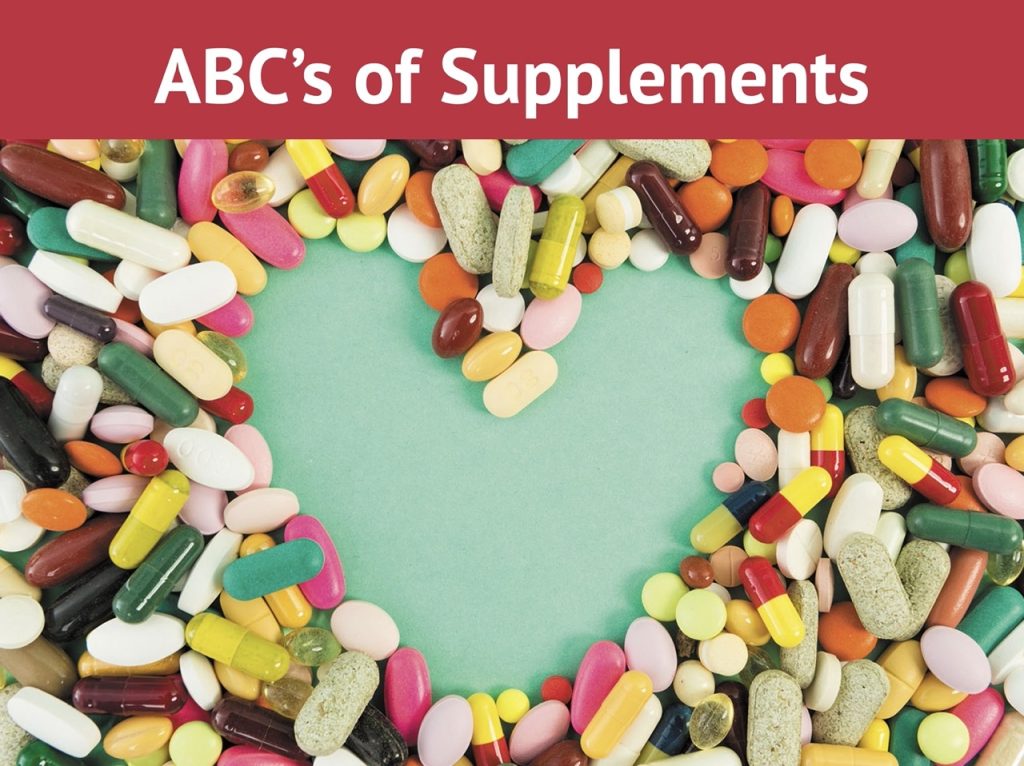- What are Multivitamins & minerals?
A supplement can’t make up for unhealthy eating habits, but sometimes even people who have healthy eating habits find it hard to get all the fruits, vegetables, and other healthy foods they need. The role of the supplement is then to help fill in the gaps.
Vitamins and minerals taken in appropriate doses may aid in lowering heart disease risk. Whole foods should howeverbe the main source of nutrients, and research published by the Oregon Heart and Vascular institute shows that many people fall short of the recommended intakes.
Numerous studies suggest positive association between taking vitamin and mineral supplements, and heart disease prevention. Vitamin and mineral supplements can be safe and inexepensive and may provide a health benefit.
A standard multivitamin usually contains:
Water-soluble vitamins.
These vitamins pass in and out of the body easily. Most do not build up in the body’s cells. Water-soluble vitamins include vitamin C and the B vitamins: thiamine, riboflavin, niacin, pantothenic acid, B6, biotin, folic acid, and B12.
Fat-soluble vitamins.
These vitamins are stored in the body’s cells and do not pass out of the body as easily as water-soluble vitamins do. Fat-soluble vitamins include vitamins A, D, E, and K.
Minerals.
These include calcium, copper, iron, magnesium, phosphorus, potassium, selenium, and zinc. Low magnesium has been linked with cardiovascular risk factors such as: high blood pressure, arterial plaque build-up, calcification of soft tissues, cholesterol and hardening of the arteries
Some multivitamins also contain other ingredients that aren’t vitamins or minerals. These include substances such as the antioxidants lutein and lycopene, and Omega- 3 fatty acids.
Omega-3 polyunsaturated fatty acids are found in oil from certain types of fish, vegetables, and other plant sources. These fatty acids are not made by the body and must be consumed in the diet or through supplements, often “fish oil.”
Omega-3 polyunsaturated fatty acids work by lowering the body’s production of triglycerides. High levels of triglycerides can lead to coronary artery disease, heart disease, and stroke. Omega-3 polyunsaturated fatty acids used together with diet and exercise help lower triglyceride levels in the blood.
- So, do I need supplements?
Certain people are more likely to need a supplement. And they include:
- People who eat a calorie-restricted diet, which does not provide enough vitamins and minerals.
- Women who are pregnant or breastfeeding.
- People who are sick, injured, or recovering from surgery.
- Infants, especially to be sure they are getting adequate amounts of calcium and vitamin D.
- People who can’t or don’t eat a variety of foods, such as people who have food allergies or people who eat a vegetarian diet.
- Who can give me the best advice?
Talk to to the GHC team, and keep in mind:
- Not all supplements are safe. If you are unsure about the safety of a supplement, talk to your doctor, pharmacist, or dietician.
- Always tell your doctor if you are using a dietary supplement or if you are thinking about combining a dietary supplement with your conventional medical treatment. It may not be safe to forgo your conventional medical treatment and rely only on a dietary supplement. This is especially important for women who are pregnant or breastfeeding.
- Like conventional medicines, dietary supplements may cause side effects, trigger allergic reactions, or interact with prescription and non–prescription medicines or other supplements you might be taking. A side effect or interaction with another medicine or supplement may make other health conditions worse.
- The way dietary supplements are manufactured may not be standardized. Because of this, how well they work or any side effects they cause may differ among brands.
If eating a heart-healthy diet is good for your heart, you might wonder if taking vitamins and other nutritional supplements that are touted as heart-healthy further protects you from cardiovascular disease. The bottom line is, we don’t recommend supplements to treat or to prevent cardiovascular disease. Food is the very best source of the nutrients your heart needs!
Call us to schedule a consultation to discuss any concerns or other questions you may have on the topic.

